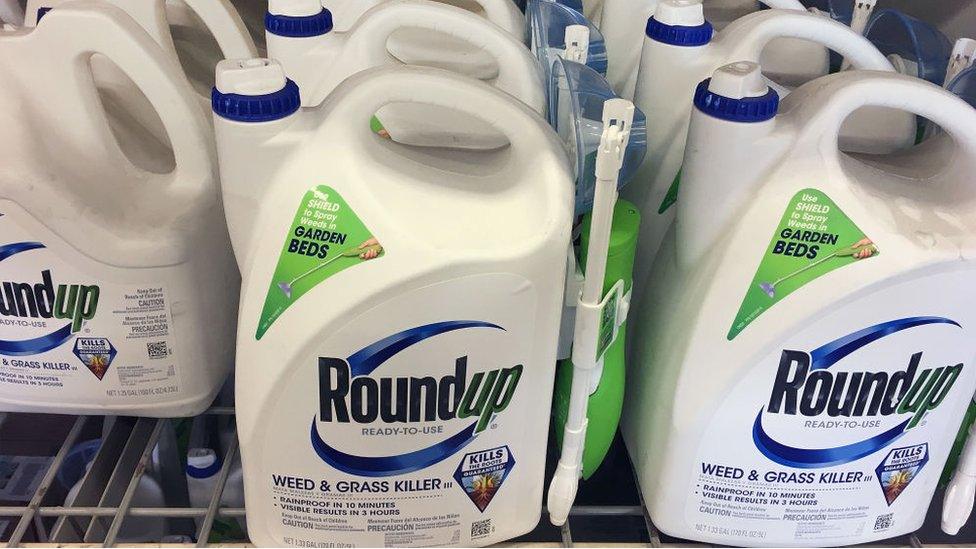Ty Llwyd Quarry: Children playing near toxic waste, fear residents
- Published
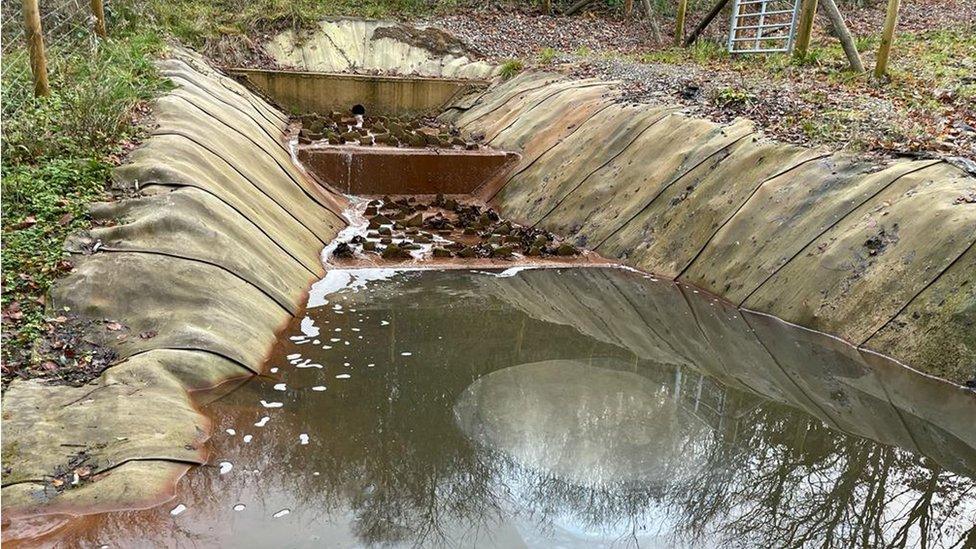
Residents fear that toxic waste is leaking from Ty Llwyd quarry in Ynysddu, near Caerphilly
Toxic waste may be contaminating a forest where children play, local residents fear.
The Ty Llwyd quarry in Ynysddu, near Caerphilly, is believed to contain highly toxic material.
Those who live in the area below the council-owned quarry say that after heavy rain a potent-smelling brown foamy liquid flows from the site down through woodland and past homes.
Caerphilly council said improvement works had been carried out.
The local authority said the drainage system installed in May 2021 was designed to collect as much of the contaminated liquid, known as leachate, as possible from the site and from the woodland below the site and channel it into one location.
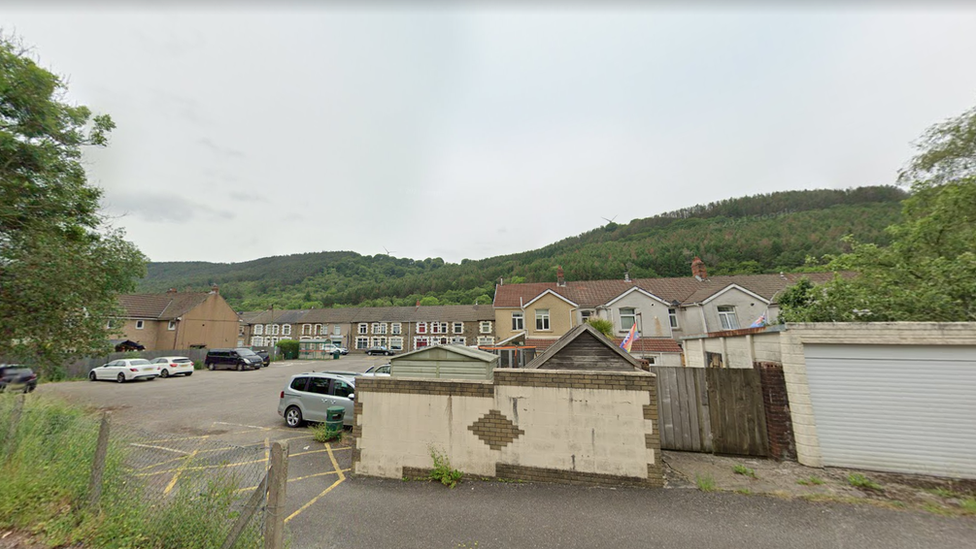
The landfill site in a quarry in Ynysddu, Caerphilly county, is around 12 miles from a former chemical company factory in Newport
"Following its collection, the leachate and any surface water (from rainfall or from the cap drainage) from the site is naturally agitated to encourage some of the contamination to turn into a vapour, therefore improving the water quality before it is sent back into the ground," the council said.
However, photographs taken by the PA news agency show a brown foamy liquid overflowing from the drainage system and spilling through a fenced-off area down the mountainside towards the village.
Many are concerned the substance is potentially harmful to inhabitants.
They also fear it could be entering the Sirhowy River and eventually spilling into the Celtic Sea.
The quarry is reported to contain polychlorinated biphenyls (PCBs), highly carcinogenic compounds that were banned in the UK in 1981.
They were dumped at the site decades ago by chemical company Monsanto from its now-defunct Newport factory 12 miles (about 19km) away.
PCBs were widely used in electrical equipment before tests revealed them to be deadly to both humans and wildlife.
"It's concerning that there are no signs to warn people, because we've seen children making dens in the forest," said local resident Olwen Williams.
Ms Williams said her brother's farm, which is next to her own house near the quarry, was bought out under compulsory purchase because of contamination.
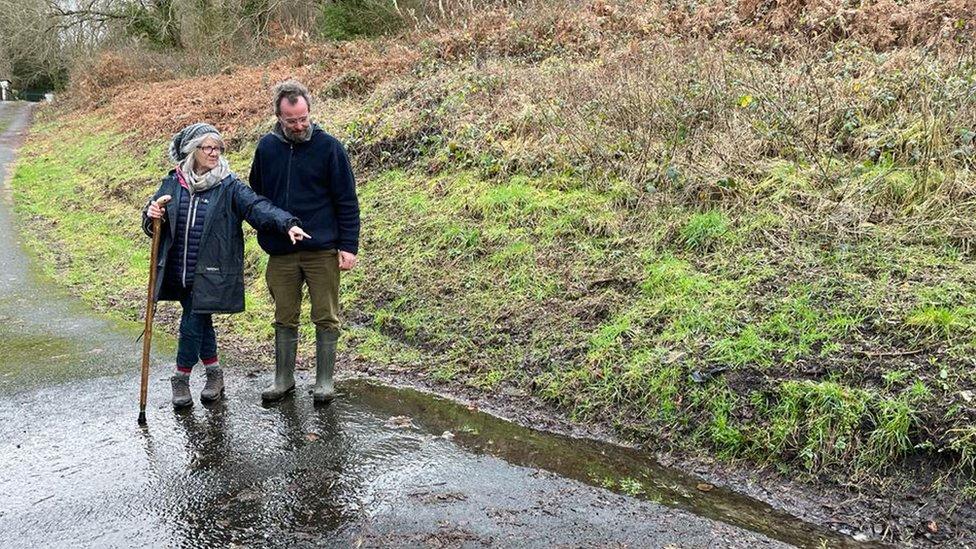
Reverend Paul Cawthorne and Jan Jones are concerned about the possible contamination of the site
She added that people are no longer allowed to grow vegetables or keep chickens in the allotments that used to sit on that land which lies in the path of the water flowing down the mountain.
"People walk their dogs there, teenagers have parties up there and people also go around (eating) the hazelnuts from the trees that were planted on that contaminated ground," she added.
The local council claims the liquid is "normal surface water" but has urged people to stay away from the quarry and surrounding area during periods of heavy rainfall.
'Fifth or sixth most contaminated site in the UK'
Independent councillor for Ynysddu Jan Jones said she has raised the issue a number of times with Caerphilly County Borough Council, and the Welsh government.
She said: "When (the foamy liquid) comes off (the quarry) it stinks."
Reverend Paul Cawthorne, also an amateur chemical pollution investigator, has said he believes the Ty Llwyd quarry is one of the most contaminated sites in the country.
"It's not just that it smells, it's the fact it's chemical vapour which is a potential danger to health," he said.
Colin Prosser, a lifelong resident of Ynysddu, said the council was not taking concerns seriously enough.
"This has been going on for 20 years, at least 20 years, and the council have been fobbing us off time and time again," said the 77-year-old.
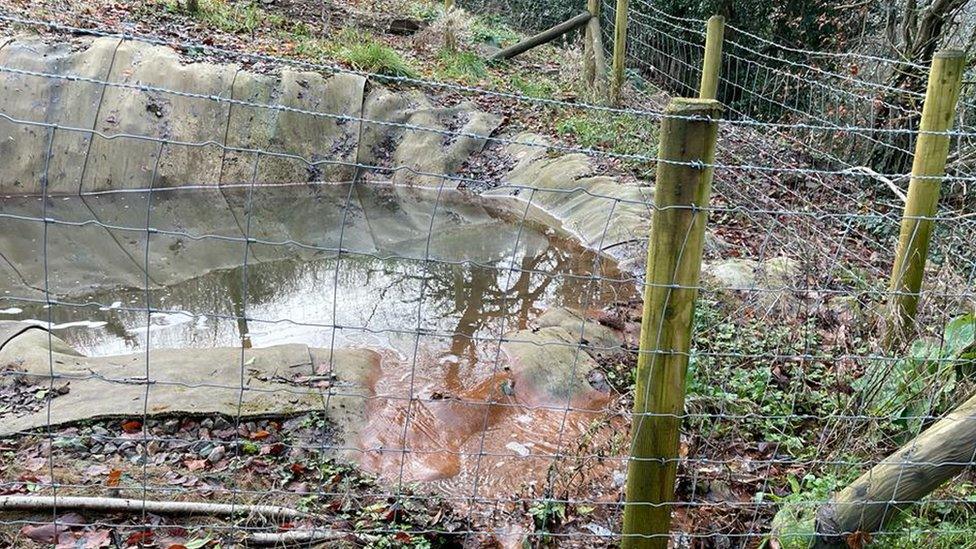
Brown foamy liquid was seen flowing from the quarry towards Ynysddu
Natural Resources Wales said it had also collected samples following complaints, but the results from that analysis had not yet been published.
Ty Llwyd is one of a number of suspected Monsanto dump sites across south Wales but so far only one has been designated as contaminated land and remediated - Brofiscin Quarry, in Groesfaen near Llantrisant, Rhondda Cynon Taf.
Monsanto, BP and Veolia agreed on a settlement with the Welsh Environment Agency in 2015 to clean up the site after it was found to be contaminating local water supplies with PCBs, dioxins and Agent Orange derivatives.

A SPECIAL SCHOOL: Behind the scenes at a school like no other
ICONIC PEOPLE, PLACES AND THINGS: Kiri Pritchard-McLean unearths the best Welsh clips

Related topics
- Published3 April 2021
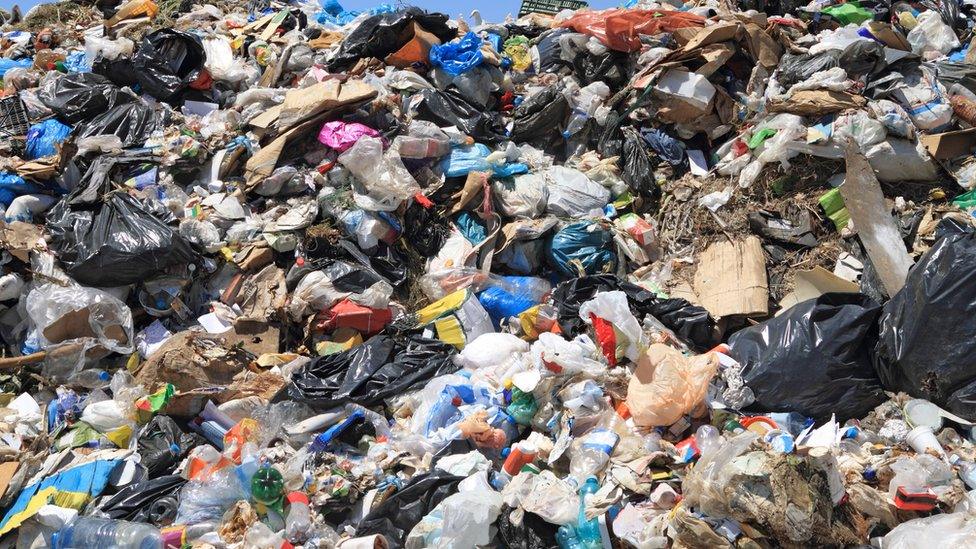
- Published17 October 2011
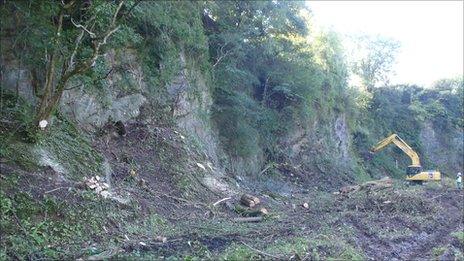
- Published15 June 2011
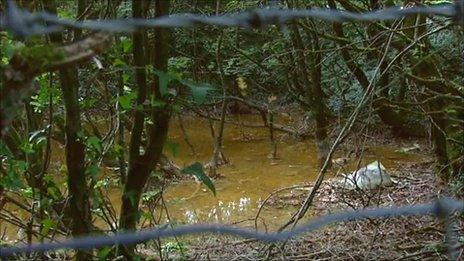
- Published8 March 2022

- Published25 June 2020
